Menu
|
photos by May Arida 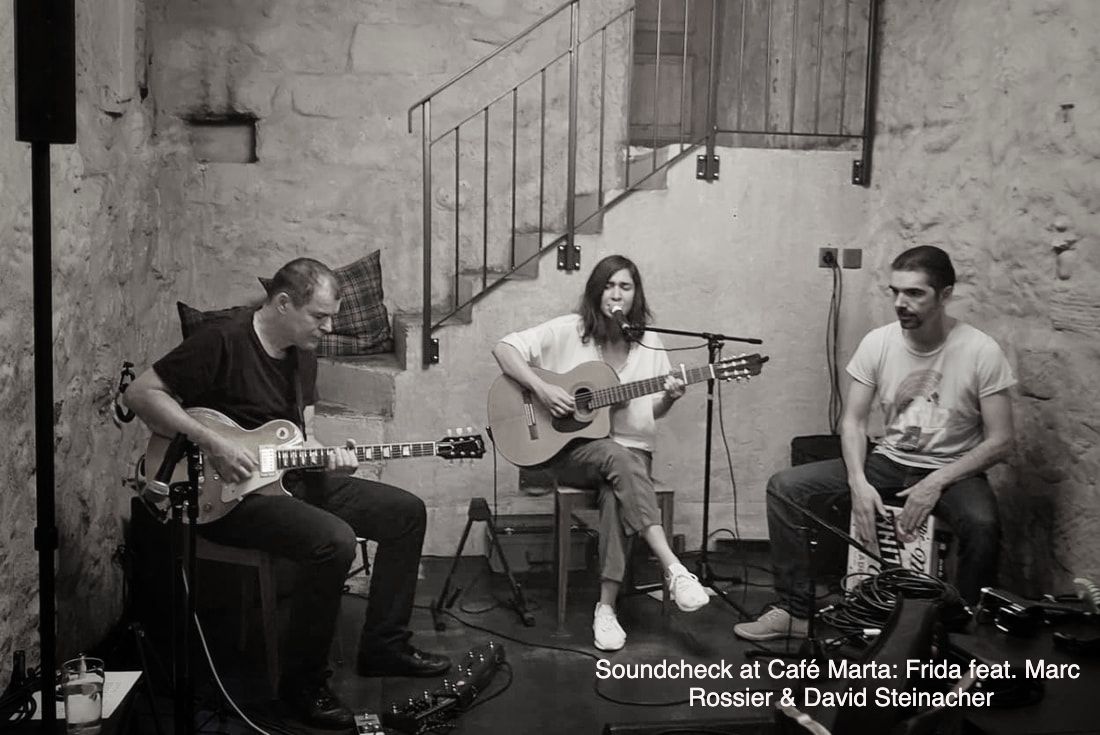 “I want to see what will happen if I only do what feels right,” says Frida Chehlaoui - who on stage is simply Frida - to an audience eager to discover this emerging singer/songwriter coming from Lebanon. “I want to see what will happen if I just go ahead and try. And now I see where this attitude got me,” Frida continues, “it got me here to play my first concert in Europe. I am really very happy to be here." The here is Café Marta in Switzerland’s capital of Bern, a cosy cellar made of medieval brick walls in the city’s old town, turned into a café and an occasional concert venue. Frida is accompanied by Marc Rossier on guitar and David Steinacher on percussion, two well known musicians in the Bernese music scene and beyond. Frida had met them just a few days before the concert and two short rehearsals were all it took to make it a well tuned trio. Tonight Café Marta is the hottest place in town: the cellar is crammed with people - and so are the stairs leading down to the cellar and even the steps behind the stage -, it is hot outside and sticky inside and the incessantly revolving fans, despite of all their efforts, cannot make it any cooler. Frida was announced as Arab Soul from Beirut. But what was it exactly that brought such a large crowd to Café Marta on a midweek summer evening? The words Arab, Soul and Beirut all have their own particular connotations, an almost magical promise to discover an emotional territory not usually accessible to Western Europeans. However Frida is much more than what she seems to represent. Starting with a warm and slightly smoky voice, and the natural ability to talk to an unknown audience and make them listen to her, Frida’s universe mainly relies on three pillars: connecting to one’s higher frequency, co-creating and experimenting. All of this is topped by a roof that Frida calls “the role of joy in the creative process”. Why suffer to create when you can walk the path of least resistance and thus bring out the creator that lies in all of us? “I know things beyond the physical realm" As a child Frida signed her first poems as Free-da and thirty something years later this makes more sense than ever. “My connection with the audience is that they see someone on stage who is absolutely free in that moment,” Frida tells me when I interview her after the concert. “I am free to say what I want to say, free to do what I want to do, free to allow myself to feel what I am feeling without thinking if this is going into the right direction.* “What allows you to be this free?,” I ask her. “I know things beyond the physical realm,” Frida replies. Frida’s freedom doesn’t even stop when facing Nina Simone’s Sinnerman, a monument of black American music and one of two cover versions that Frida has in her repertoire. Not happy with the original lyrics (on Judgement Day the frightened Sinnerman goes to the rock, the river and then the sea, desperately looking for protection and finally turns to the Lord who refuses to help him and sends him to the devil instead), Frida added her own twist to the song, because after all the Lord is love and not supposed to send anyone to the devil, no matter how much this person may have sinned. “I see you,” sings Frida in Arabic, “I see the fear in your eyes, I see the chains you’re carrying, but you seem to have forgotten how you were the one who put them there. It is now time for you to see your power, the power of a thousand suns shining from within you, shining to remind you: don’t you know that you and I are one and the same?” This is extremely powerful and beautiful at the same time. Frida’s songs are meant to remind us who we truly are and that we should forget about the restrictions that we limit ourselves with, that we can be much more than we think. In “Out and About”, Frida describes how our bodies must open up to embody the light that we truly are. In “Aala Mahli” (going slowly) Frida tells us the story of the heart that must be our guide, the only guide we ever need. Frida herself is “Bint el Kol” (the daughter of everything); her homage to the divine feminine will also be the title track of Frida’s first album set to be released in September of 2019. Frida is the daughter of the wind, the daughter of the sun and of the waves (“like the waves I can be calm, like them I have been fierce”), she’s the daughter of the earth and the daughter of ether (“unseen and omnipresent, weaving us all into one”). Frida’s concert in Bern was a success beyond expectations. The audience was thirsting for her message of self-love and collective empowerment and for her well tempered dose of spirituality that many of us are lacking in our get-up-and-go lives. Visiting Bern has enabled Frida to meet musicians such as the exceptional accordionist Mario Batkovic and ECM recording artist and bassist Björn Meyer to talk about their approach to music and about possible future collaborations. Already Swiss rapper Greis joined Frida on two songs at Café Marta, subsequently inviting her to be his guest at his own concert later that week. Frida sang Ya Sadi’i (my friend) on this occasion and this song’s story “about the courage to chose the less traveled path to experience the magic unfold so we become the makers of our destinies”, is a story that speaks to all of us, regardless of our mastering the Arabic language or not. Frida’s message is an universal one. We need her to be the companion of our lives for many years to come.
1 Comment
from The Open Enso archives. Photos: May Arida 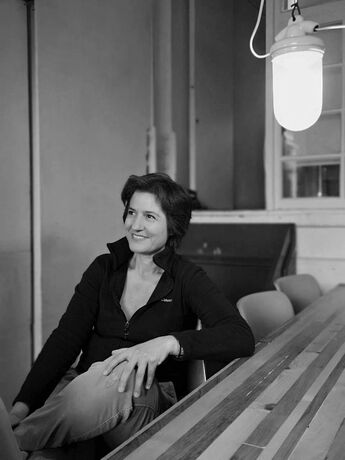 Three concerts in a row in one of the music capitals of the world: that’s why Sandra Arslanian and Sam Wehbi came to London in this early September of 2018. Sandra and Sam are members of Sandmoon, an indie pop/folk and sometimes rock band from Beirut Lebanon. Sandra founded the band eight years ago, a few years after she came back to Lebanon from Belgium where she grew up; she writes all the songs, sings and plays the ukulele, the guitar and the keyboard. Sam plays the lead guitar, particularly when Sandmoon perform live. The rest of the band couldn't make the trip to London, not least because of visa issues. We arrive in a sunny but windy London on Friday afternoon. We: that are yours truly reporter from Switzerland and May, a photographer who is originally from Beirut, like Sandra and Sam. Both of us have known Sandra for quite some time, closely following her career, from releasing three albums and an EP to winning a Lebanese Movie Award in 2017 for composing the score of Philippe Aractingi’s Listen. We meet Sandra and Sam in Katja Rosenberg’s apartment in Walthamstow in northern London. Katja’s flat is small and well stuffed, but this is London where space is rare and expensive. For this weekend the apartment is Sandmoon’s home base. Yesterday’s concert in a chapel was amazing, Sandra gives us the update after we all sit down. Two dozen persons only, but the place was sold out. We played for eighty minutes and the people wouldn’t let us go. Now we are curious what tonight’s concert will bring. It will be a Sofar event at a private place in Bethnal Green. "It is really nice to play in front of people who actually listen to the music." On our way to the Sofar concert Sandra hands out Stimorol chewing gums to everybody. Tonight, Sandra says, I will be the great unknown. Nobody this evening will ever have heard of Sandmoon or Sandra Arslanian. I like the idea. Our music, she explains, might not work in Spain. But in Portugal, with all their Fado, it might. Here in London our music definitely works, people like what we do and how we sound. Are you fed up with Lebanon and the Lebanese audience?, I ask Sandra. Not really, she says. But of course Lebanon is a very small market for English lyrics pop and rock music. And there is another thing: unfortunately in Lebanon only a few people go to see concerts because of the music. They go because others go too and it then becomes a social event. It’s like a herd moving from place to place. It is really nice to play in front of people who actually listen to the music. Sofar tonight takes place at the loft style apartment of Casey and his girlfriend Rachel. Sandmoon start their concert with Home, one of their trademark songs. Sandra sings without microphone, without nothing, to an audience on the floor and on sofas with all eyes on her. Sam is her ideal musical partner, getting the best out of a rusty acoustic guitar that he had to borrow from a friend. With the small combo, Sandmoon depend even more than usual on Sandra’s voice and performance. The audience is like spellbound, particularly when Sandmoon perform The Answer, a song from last year’s recording session in Berlin. Then they play Walk, an old favorite, but not Temptation, a newer song that wails like a prayer. It’s Friday night and the audience asks for something "more party". After the show Sandra is sweaty and exhausted. The public slowly leaves the apartment, they very much liked what they got. We pick up some Chinese food at a takeaway in Walthamstow. Then we all huddle again in Katja’s apartment and eat. "Me improvising on Bach, what the hell!" The next day, when we meet again, Sandra is in a good mood, offering Belgian chocolate to everybody. Sam lies on the bed and fingers around on his electric guitar before he goes into a catchy rock tune from his own Uncle Sam band in Beirut. In the meantime Katja is busy doing some household work, watering plants and hanging laundry. Katja was born in Germany but lives in London since 1998, working as a freelance powerpoint guru and an organizer of art events. It is thanks to her that Sandmoon play three concerts in London. Katja sits down at her piano, jammed between the bed and the wall, and plays Bach. Sam plays along on the guitar, still on the bed, his eyes staring at the ceiling. Me improvising on Bach, Sam says afterwards, what the hell! Saturday night’s venue is the Hornbeam Café, an organic, authentic neighborhood café and also a community center. The Hornbeam is a place similar to the Onomatopoeia in Beirut where Sandmoon like to play. What is Sandra for you?, I ask Sam outside the café, just before the show. Sandra is like a mother to me, Sam says. She is a great teacher; it’s three years now that I am playing with her. She makes me control myself better, musically and also in general. I am still relatively young, Sam explains, and therefore I have a tendency for wanting to storm the sky. Even without the full band, Sandmoon cover a lot of musical ground with their performance this evening. Sandra clearly has made the transition from recording artist to performing artist. She is at ease on stage, displays a lot of self confidence and is closer to the audience than I had ever seen her. During Sandmoon’s concert all their videos are projected in an endless loop on a screen behind Sandra and Sam. The audience sees images of Beirut in the 1960s and of people protesting the political order in recent years. The video of Sandmoon’s 2017 single Shiny Star passes by and Pierre Geagea dances in Beirut Mansion to the music of Time Has Yet To Come. Seeing it like this, from A to Z in one sequence, it is an impressive body of work. On our way back to the apartment we stop for a late night dinner at Thainese, an Asian restaurant on Walthamstow’s main road. We talk about Prince and Bowie, Sandra’s musical heroes, and also about Fentanyl and discuss if pain killers should be classified and treated as drugs. For Sunday lunch we again go to Walthamstow’s pedestrian area and to a Bulgarian steakhouse. What is the way ahead for Sandmoon?, I ask Sandra. Could hiring local musicians in London be possible, to play future concerts here with a full band? It could, Sandra replies. However it is hard for me to play with strangers. Sam and me for instance, that’s like an osmosis. In addition to not being strangers, Lebanese musicians are all shaped by the same experience: Lebanon. Could musicians from London emulate this experience? Often this is an experience of war and it is also reflected in Sandmoon’s current setlist going from songs off the first album raW to Masters of War, a Bob Dylan cover. I don’t know the war that well myself, Sandra says, at least not first hand. In 2006 I was abroad and when my family left Lebanon because of the civil war, I was only seven months old. Does it matter? Despite not personally being there, war and the consequences of it are profoundly anchored in Sandra’s DNA. Back in Switzerland Sandra messages me that Sandmoon will soon start to record new songs, with an aim to have a new album out in 2019. Sandra has been very creative lately, also inspired by the good experience she had playing in London. She was in a flow and has written many songs that now need to be developed, refined and recorded. And: We clearly aim for an another Sandmoon visit to London soon, Sandra says. Londoners dig the melancholic side of Sandmoon’s music and they always love a good storyteller. And that’s precisely why Sandmoon came to London: to find a new audience and new opportunities to spread their message and their musical love. Sandmoon will be back in London; new concerts are scheduled for August of 2019. As for the new album: all the songs have been written - it will be somewhat of a new direction for Sandmoon - two songs have already been recorded and "Fiery Observation", the first video off the forthcoming album "Put a Gun/Commotion", has just come online. For Sandmoon, it's a road that never ends. Photos by May Arida 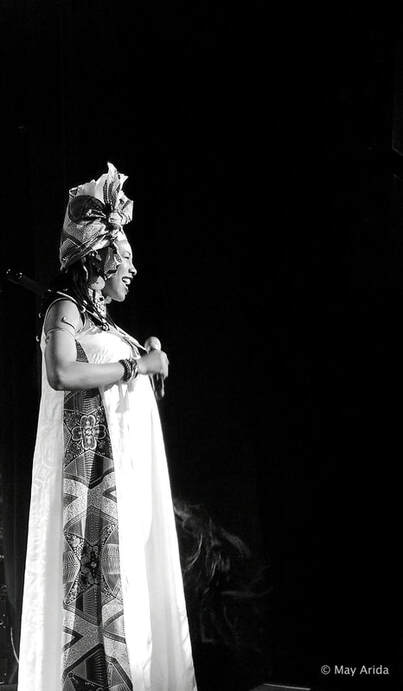 At the end of the film "Sia - the dream of the Python”, Sia confronts the new king, undresses herself and storms bare-chested out of the palace. She then time travels and in the next scene you see Sia walking in the streets of Ouagadougou where she demonstrates against tyranny all by herself. The main part in Sia is played by Fatoumata Diawara. It is a fictional story, but the persona in the film also carries quite a lot of Fatoumata Diawara character traits: fierce, unapologetic and authentic. As a child and as a teenager Fatoumata didn’t have an easy life. Growing up in difficult family circumstances, first in Ivory Coast and then in Mali, she had to fight to survive, against the tyranny of a family and a traditional society that had earmarked her for a different role in life. At the age of twenty Fatoumata Diawara ran away from home and joined a French theater troupe. "If I had that slip by," Fatoumata once said in an interview, "I wouldn’t be here today. I’d have minimum nine children and be very, very old (Fatoumata is 37 years old). My breasts would already be sagging and I wouldn’t have a job because I don’t have diplomas.” Tonight Fatoumata Diawara takes the stage of the Kaufleuten in Zurich. In the meantime she is no longer just an actress, but has also become a musician; she writes her own songs, plays the electric guitar and tours the world non-stop. It is a sunny Sunday evening in Zurich, you could also take a walk by the lakeside or have a barbecue in the garden, but the Kaufleuten concert venue is full. It is a mixed crowd that is waiting for Fatoumata, multi gender, multi age and multi ethno. Do they know what is in store for them? Can the audience anticipate that it is about to experience the greatest show that one can imagine as a concertgoer, with a personality - a woman, an artist - whose energy and presence on stage are second to none? Fatoumata Diawara doesn’t need to sing love songs because she herself is love. And then Fatoumata Diawara enters the stage. She is tall, she is beautiful, she starts to sing and to play, from Mali, from Africa, actually from all of us. For we are one planet, one humanity, one heartbeat, says Fatoumata, and the collective love that we derive from it makes it happen that by the third song already everybody in the house claps, dances and feels happy. Words are important to Fatoumata Diawara, however only very few in the public understand the lyrics of her songs word for word. Fatoumata sings in Bambara, a language from Mali. But she speaks with the eyes, with her voice; she talks with her gestures and with her body, and everyone knows what she means. Fatoumata Diawara wails, she jubilates, she accelerates and then slows down the pace again. It’s like a ride on the roller coaster of life where at the end the comfort of human warmth and the laughter of love await. I had hoped to interview Fatoumata Diawara before her concert in Zurich but her management shielded her from any requests because she needed to rest and to refuel before her "never ending world tour" continues. Experiencing her performance this evening, I understand why. Fatoumata goes all in when she's on stage. She has just been exhaustively touring in the USA, Canada and Spain, and after Zurich she will play in France and at the big festivals in Glastonbury and Montreux.
I would have wanted to know from Fatoumata Diawara how she, who speaks a lot about her responsibility towards Africa and the Africans, can handle this responsibility. Is it not too much for her at times and too heavy a load? It seems like she wants to save all of Africa on her own and counteract the rampant afro-pessimism (the Africans are muddling through and it's never getting any better) with a robust self-confidence that advocates specific African values and a self-responsible attitude to shape the continent. "Let's talk about the new Africa," says Fatoumata, the spokeswoman for a better Africa, in Zurich. "Many positive things happen with the new generation.” I also wanted to ask Fatoumata Diawara how she reconciles her two vocations, activist and artist. Can one say that her music embodies the artist Fatoumata and the lyrics her activism? How does she manage to find the right dose for both the fun and the serious? Incidentally, this dual role is not unknown in the culture of Mali. Already the early hunters - activists, if you will - became artists after a successful hunt and picked up an instrument to sing their own praises.  Self-evidently Fatoumata Diawara doesn’t sing her own praises. She doesn’t have to and she is way too smart for that. The rifle of yesterday's hunters has become Fatoumata's guitar of today. Just like her idol Fela Kuti, the Nigerian musical activist who invented the Afrobeat, a mixture of American funk and traditional African rhythms, often paired with provocative lyrics critical of the ones in power. In her repertoire Fatoumata Diawara has a song Fela-Kuti-style as well. When she performs “Negue Negue” (let’s have fun) from her current album “Fenfo”, Zurich goes through the roof. There is no more holding back; Fatoumata is grooving, the bass is booming, the audience is going wild. “We are having fun,” she sings, “it is what makes this world a better place to live in.” Fatoumata was not programmed for fun when she was born. Consequently she began her career as a musician writing and singing protest songs. "That's what I can do," she said in an interview for Afropop worldwide. "I can’t sing love. I can’t sing lightly." Fatoumata Diawara doesn’t need to sing love songs because she herself is love. She is love for the music, love for the people and the light on her face radiates and warms and brightens up even the last spectator in the darkest corner at the rear end of Kaufleuten. I am your sister and you are my sisters and brothers, says Fatoumata. We all want to hug ourselves and Fatoumata first and most strongly. Fatoumata is fantastic, Africa is fantastic, music is fantastic, we are one life and one love. We are one with Fatoumata Diawara. |
EditorKurt is based in Bern and Beirut is his second home. Always looking for that special angle, he digs deep into people, their stories and creations, with a sweet spot for music. Archives
September 2020
Categories
All
I'd love to discover you. Share your creations here.
|

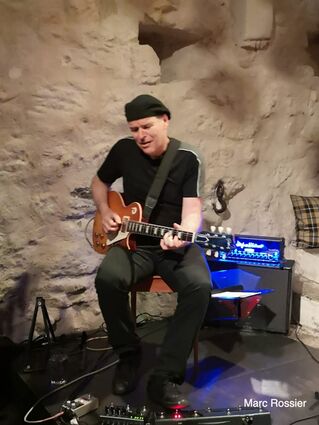
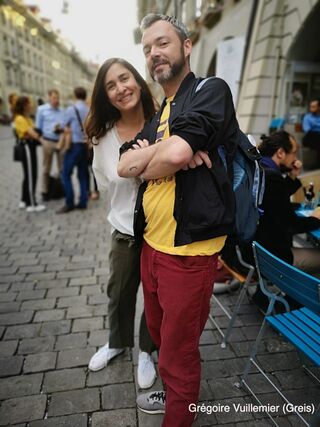
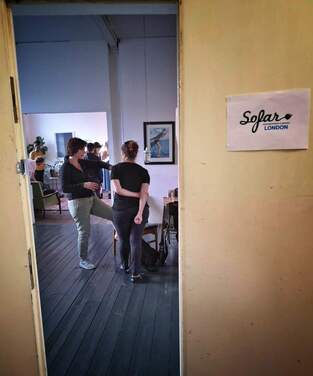
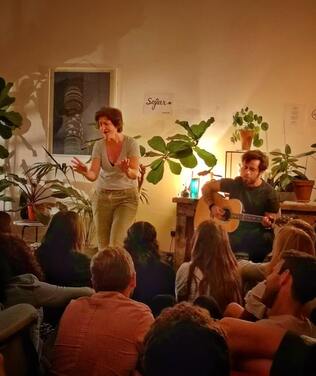
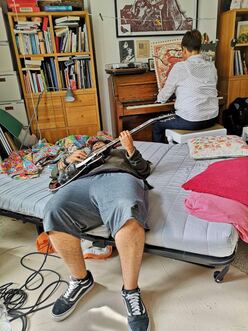
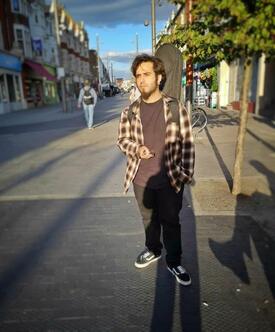
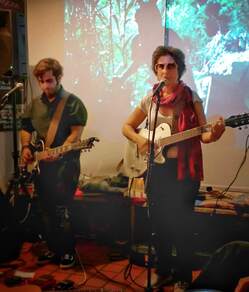
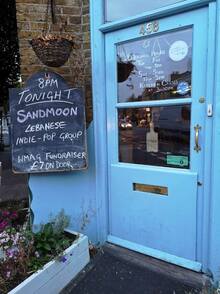
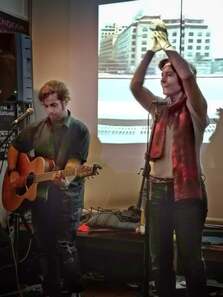
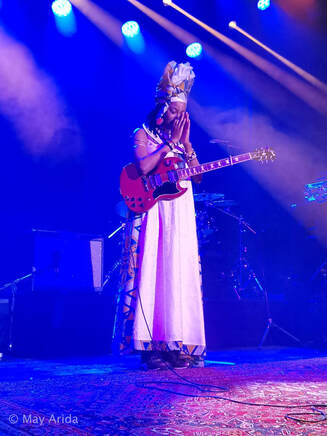
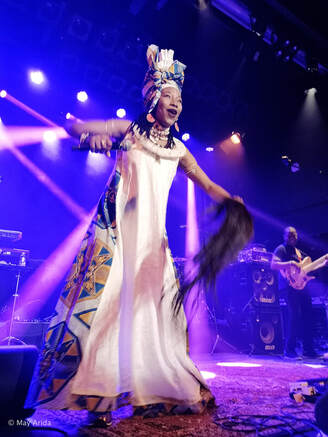
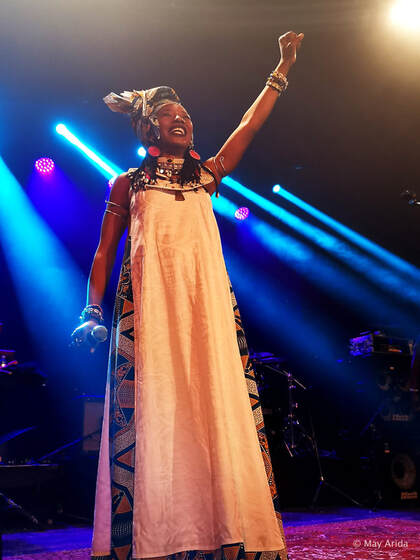
 RSS Feed
RSS Feed
